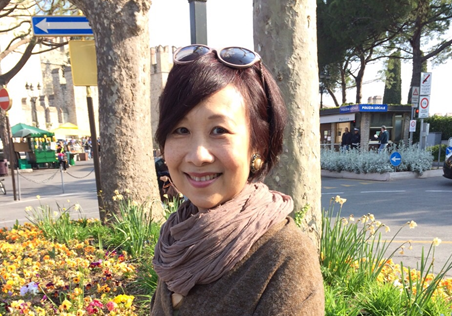
The day Grace* Chung walked away from the faith was the day that her mother, Jacqueline, knew where she had gone wrong.
Raising a child in a Christian family and having a child “know” all the right things about God, she realised, was not enough. And the constant lecturing, scolding and preaching had clearly not worked.
A veteran in the early childhood sector and a pioneer of St. James’ Church’s children’s ministry, Jacqueline had imagined that she might have known more than most about raising and nurturing children.
She had thought that Grace’s seemingly firm grasp of spiritual issues made her sensible, and therefore had not worried about this aspect of her daughter’s life.
At the same time, she had also done what she thought was much-needed in laying a solid spiritual foundation. Unfortunately, she often ended up “spewing scripture, sermonising, and invoking fire-and-brimstone”.
“I was the typical authoritarian parent. But I didn’t attend to her heart.”
Because Jacqueline and her pastor husband, Richard, believed in achievement, she constantly pushed her daughter to succeed and do well in school, in music lessons, and in everything she sent her daughter for.
“I was the typical authoritarian parent,” admits the Senior Principal and Academic Director of St. James’ Church Kindergarten. “But I didn’t attend to her heart.”
‘I Just Wanted to be Understood’
Grace nods when she hears this. Her parents’ “task-oriented” approach, she says, didn’t go down well with her when she entered her teenage years. When they disapproved of her behaviour and lifestyle, instead of asking her why she behaved the way she did, they simply told her to stop it.
“It had the opposite effect,” says Grace. “The more they pushed me, the more I pushed back. I wanted them to understand how I felt and help me figure out my struggles, but they would just say, “Get over it.’ They just wanted it fixed. Didn’t matter what the reasons were, just get it fixed. But I just wanted to be heard, to be understood.”
Many teenagers, she adds, just want to be accepted for who they are, and not who they should be. And even more importantly, they don’t want to be defined by their actions.
For example, just because a teenager doesn’t obey her parents all the time doesn’t mean she’s being a rebel, she says.
That feeling of rejection was also mirrored in church, where she never felt like she fit in.
“Are you raising a child for yourself, or are you raising the child that the Lord has given you?”
Many adults, she says, kept questioning her “liberal” behaviour. “People asked, ‘Why do you have piercings? Why do you always wear black? Why do you listen to rock music?’ But I thought, ‘Why should that matter? It’s just my personality, it’s not a matter of my heart.’ But to them, I was not a typical, ‘acceptable’ Christian.”
The disapproving looks and questions gave Grace the impression that Christianity was all about rules, rituals, and religiosity.
It didn’t help that some of the teens in her church who appeared to be “good Christian kids” were also doing all sorts of things behind their parents’ backs.

The hypocrisy struck Grace. “Why pretend when you don’t believe?” she asks. “For me, I wanted to be honest to myself, to be true. I didn’t want to pretend to be someone else, I was who I was, even if my parents weren’t proud of me.”
By this time, Grace had begun to assert herself and her social circle had become wider. The influence of peers and social media had begun to increase.
Tired of trying—and failing—to meet the expectations of her parents and church mates, she stopped going to church. It was then that Jacqueline realised she had been holding on to the wrong idea of what it meant to raise a child. On her knees in tears and in desperate prayer, she heard the question being asked of her: “Are you raising a child for yourself, or are you raising the child that the Lord has given you? Do you recognise who she is—God’s design—or are you just trying to shape her into your image of a perfect child?”
God’s Original Design
If there was one lesson that Jacqueline learnt from this experience, it was this: Parents need to see their child as God’s original design.
“As parents, we need to constantly go to God, the Designer of our child, and ask Him: Who is this child? What have You destined him or her to be?”
“We can’t judge them by our own standard, because God made everyone different,” says Jacqueline. “As Genesis 1:31 says, when God made man, He said it was ‘very good’. We have to look at our children the way God looks at them. They are not us, and they should not be us.”
“As parents, we need to constantly go to God, the Designer of our child, and ask Him: Who is this child? What have You destined him or her to be?”
For Jacqueline, this truth took her to a point of humility. She realised that instead of depending on her own benchmarks, she now had to operate by God’s divine standards.
This meant helping her daughter not to think either too highly or lowly of herself, but to see herself in the light of how God had made her. “As parents, we shouldn’t overpraise or put our children down,” she says, “as that would be doing God’s design a disservice.”
Having spent more than 20 years running St. James’ Church Kindergarten, Jacqueline is well aware that this is not an easy task in competitive Singapore.
Even in spiritual matters, she adds, parents can inadvertently stress their kids to perform, whether it is to be spiritually mature, to know the Bible well, or to be the most articulate and active in Sunday School.
“We need to be careful we don’t put a burden on our kids. They should not feel that they are less than who they are, that they do not measure up.”
“Singaporeans are generally over-achievers. In our quest, we are also high achievers spiritually. It’s not wrong to want our children to achieve, but what does it mean to achieve?” she asks rhetorically. “We need to be careful we don’t put a burden on our kids. They should not feel that they are less than who they are, that they do not measure up.”
When her daughter struggled with her Chinese lessons at secondary school, Jacqueline tried to put that into practice. She even tried not to worry about Grace’s ‘O’ levels.
“In protest, Grace used to hand up a blank sheet for her Chinese tests,” she recalls with a laugh. “I knew deep down that if the Lord harnesses that will, she would hold steadfastly to Him. She was stubborn but I prayed that she would be stubborn for the Lord.”
Letting Go
God answered Jacqueline’s prayer.
After Grace went to university, she began to question and review her own beliefs and prejudices about Christianity. It started a long journey of self-reflection that eventually led her back to God.
Jacqueline can still remember the Skype conversation she had with her daughter. As she looked into Grace’s eyes, even before the young woman started to share about her encounter with God, Jacqueline knew something deep had changed spiritually.
Grace had come home to God, and to her parents.
Today, Grace is a missionary who spends time in inaccessible countries sharing the Good News.
Grace appreciates her parents’ attempts to persuade her to return to God, but stresses that it was a journey she had to take on her own.
“They tried to nag me into obedience,” she says. “But you have to choose to surrender; you can’t be scolded into it.”
It’s something that Jacqueline has learnt on hindsight. Her mistake, she says, was not letting go. To let go of the tight reins and let her daughter grow up, and to let go of her daughter to God.
When she saw Grace beginning to rebel as she entered her teenage years, she recalls, she tightened the boundaries instead of loosening them, which only made it worse.
To let go of the tight reins and let her daughter grow up, and to let go of her daughter to God.
Now, she realises that parenting is like flying a kite. “Sometimes you pull back, sometimes you let go,” she explains. “When they are young, you keep them near you. As they grow older, you let them fly higher. And if there are storms, sometimes you rein them in.”
But letting go of her daughter to God, says Jacqueline, was even harder.
It was a painful process, because it made her feel completely vulnerable. “You’re afraid your child would go wayward.
But at that age, you also know you can’t tie them to you,” she says. Realising that she had no control, that all her threats and persuasions were not having any effect, made her feel totally helpless. “I felt an utter failure as a parent. And that’s when I turned to God and said, ‘I can’t do this on my own. I need You to help and show me how to rescue my child’.”
“I turned to God and said, ‘I can’t do this on my own. I need You to help and show me how to rescue my child’.”
Jacqueline still remembers her point of “complete surrender”. One day, she sat alone in her room and had what she called an “intense” conversation with God, and submitted her daughter to God.
She prayed, “God, I place my daughter on the altar. She’s yours. I trust her completely to You. Whatever You do, I trust You. I’m letting go. She’s Yours.”
Being a Steward
Letting go of Grace to God also reminded Jacqueline of this simple yet stark truth: Parents are stewards of their children.
“Our children are not ours, they’re on loan,” she says. “We don’t own them. Our role is to raise them, steward their lives for God, and give them back to Him.”
That’s why when Grace eventually returned to the fold, Jacqueline was doubly grateful. “I realised my child wasn’t mine to start with, so I’m thankful that He still shares her with me.”
The experience has given Jacqueline a greater understanding of Abraham’s heart when God told him to sacrifice Isaac on the altar.
“Our children are not ours, they’re on loan,” she says. “We don’t own them. Our role is to raise them, steward their lives for God, and give them back to Him.”
In a way, she had done this when she learnt to let go of Grace and ask God to take care of her. And just like how God gave Isaac back to Abraham, she also felt that God had given her daughter back to her.
This realisation reminded her of her role as a steward—and not the owner—of her child.
But, as much as Jacqueline had to learn to let go, she also learnt how to hang on to her daughter—spiritually.
In her intense conversation with God, she also had some firm words for the devil, she says. “I told the devil, ‘You can’t touch her. She’s not yours, she belongs to God. She’s our offspring and she’s under our covering. We claim our authority over her’.”
“Parents must never give up. They must never say to their kids, ‘I give up on you.’”
Jacqueline believes that that was also a significant turning point in the spiritual realm. “I knew in my heart and spirit that if I gave up and took my hands off my daughter, she would be fair game for the devil.”
While she understands that it is tempting for a frustrated parent to tell their rebellious child, “I give up on you, you do whatever you want”, Jacqueline feels that telling her daughter this would have been a “big mistake”.
She knew that while she could not control what Grace did, she could still choose to pray and protect her daughter spiritually.
“Parents must never give up,” she says emphatically. “They must never say to their kids, ‘I give up on you.’ We need to be careful with our words. As James 3:10 says, our mouths can both bless and curse.”

Keep Loving
One of the things that may have helped Jacqueline and her husband was their own lives and faith in God.
“I knew that no matter what I did, I would always be welcomed back like the prodigal son… It assured me that they would not cut ties with me because of what I did, and that they would be there for me when I needed help.”
Even when Grace was questioning the Christian faith, she was still able to see some authenticity in how her parents’ lives revolved around God—even if they weren’t perfect. And some of the things that her parents taught came back to mind when she was seeking God.
Jacqueline believes that this was the “deposited capital” that came from the spiritual truths that she and her husband had taught their daughter from young. Even though Grace had not seemed to respond at the time, says her mother, the Holy Spirit was able to activate those early words and teachings later in her life.
For Grace, however, there was something even more important: the assurance that her parents still loved her.
“I knew that no matter what I did, I would always be welcomed back like the prodigal son,” she says. “It was very important to me. It assured me that they would not cut ties with me because of what I did, and that they would be there for me when I needed help.”
Hope for Parents
While it has been a long journey with her daughter, Jacqueline has come to see that no matter how far parents may fall short in their role, they can hold on to this comforting truth: God can redeem their parenting.
“I wish I had nurtured my daughter more instead of all that screaming and nagging.”
Her close relationship with her daughter today shows her that despite all her own mistakes, God has given them a second chance. “Today, my relationship with my daughter is very close,” she says gratefully. “She tells me, ‘You are my best friend’.”
Grace, too, is more than able to laugh when she looks back at what has happened. “I was the only child, so they had no experience,” she chuckles.
She has personally experienced what it means to grow up—and to serve—according to God’s original design.
Her work is somewhat different from that of a “traditional” missionary, in that she is not based in a fixed place or church that reaches out to the local community—a ministry that fits her character and personality.
“God continues to use me precisely in the way He has created me, which allows me to connect with ‘fringe’ communities and people that would never step foot in a typical church environment,” she says.
Jacqueline occasionally has some “if only” thoughts over her journey of parenting, but holds out hope for all parents.
“I wish I had nurtured my daughter more instead of all that screaming and nagging,” she says ruefully. “And maybe she wouldn’t have had to struggle so much if we had done better. But it’s never too late. God redeemed our relationship.”
Jacqueline’s Tips on Parenting
- Accept and see your child as God’s original design.
- Learn to see your role as a steward in shaping your child’s God-given destiny.
- Affirm your child in the areas of his or her strength, but with humility.
- Allow your child to experience small setbacks and failures.
- Don’t impose your own baggage and hang-ups on your child.
- Model a godly life:
- Pray for your children
- Read God’s Word together
- Don’t be overbearing and preachy
- Don’t invoke judgment
- Bring God into every conversation in a natural way
- Be authentic, share your struggles with your kids
- Be loving and kind
*As Grace is a missionary, she has asked for her real name not to be used.



